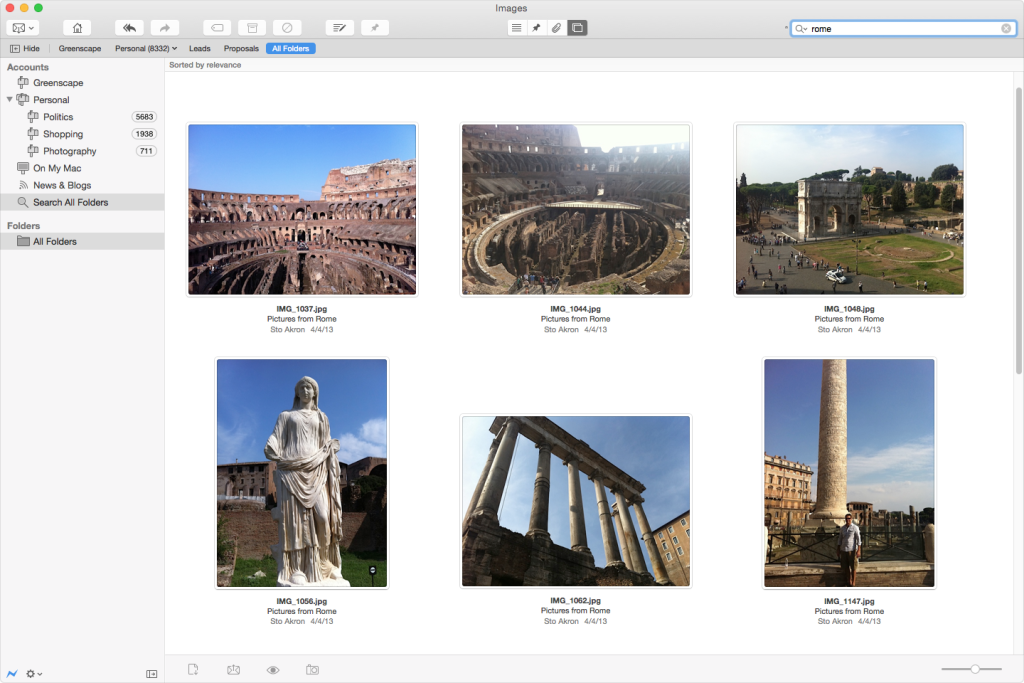As more millennials break out on their own, a tech-focused look at what you need to get started.
We know millennials are entrepreneurs at heart. We’re striving for independence instead of the C-Suite, and looking to place more emphasis on values like work/life balance and flexibility in schedule.
But no matter how ready you are to ditch the 9-to-5, starting your own business, or even working from home requires careful planning, and figuring out the technology angle can be daunting. Working from home, you won’t have the support of the trusty IT department, but with a few investments and some set up time, you won’t need them.
Email:
Each morning as I turn on my computer I say a little prayer to the tech gods. “Please,” I say. “Please find it in your infinite wisdom to end the email madness.” Alas, so far my pleas have gone unanswered, but the consolation is the absolute glut of powerful and well-built email clients.
If you’re on OS X, you’re in luck because Apple’s built-in email client is one of the best. It might not have the most features for power users, but its saving feature is its speed. I have a chain of emails with a friend that includes over 550 replies with images, HTML, links. Apple Mail doesn’t even hesitate when opening this behemoth.
Alternatively, if you’re on Windows, Postbox 4 is the newly released sibling of the amazing Postbox 3. It’s so new I haven’t had a chance to adequately test out most of its features, but I can certainly attest that for the modest $15 price, Postbox 3 was the best email client on Windows, and a tremendous alternative to any well-known email tool like Outlook. It has ridiculously good Gmail support and added features like a code view and real-time tracking means it has become even more efficient.

Postbox 4 has image search. That feature alone is worth the $15 price.
Storage:
Cloud storage started off as a nice thought and quickly developed into an essential tool. I can’t tell you how many times I’ve been saved by my Dropbox account. For the uninitiated, Dropbox is your hard drive, online. It’s also a file sharing tool that integrates into whatever platform you’re using (Mac, Windows, mobile) and allows you to easily collaborate with others or just sync your files across multiple devices. Not only is the access convenient, it helps cut down on emailing files.
When you’re working at home, it’s nice to be able to pick up and work from a coffee shop, client’s office or anywhere on the road. It’s also a great tool in an emergency (if the power goes out and you’re on a deadline you can simply switch locations).
If Dropbox isn’t your thing, Google Drive is a fantastic alternative and nearly essential if you’re already using Google tools like Gmail.
Documents:

Coffee. The other essential gear when working from home.
I can’t believe I’m writing this, but here’s my advice: save yourself a lot of hassle and get a copy of Microsoft Office. Even if you’re writing your documents and other files in other software, just accept that most of the world is using Microsoft Office. It’s worth it because you’ll be able to easily read and edit any documents you receive without the hassle of separate files and exporting different file formats. Of course, although I tend to harp on Word, it does have its advantages, and Excel is a powerful tool if used well.
Security:
With near-daily news stories about data breaches at popular internet firms (read: Ashley Madison hacked), it has never been more important to upgrade your passwords. I’m talking about randomly generated, long strings. But who can remember all those letters and numbers? Nobody.
Password managers like LastPass and 1Password make it simple to keep things highly secure and you never have to remember a password again. While I love 1Password on both OS X and Windows for features like password audits, easy browser integration and super-fast syncing, LastPass is a great alternative, offers most of the same features and it’s free! Start with LastPass and if you find yourself wanting something more, switch to 1Password.
Computer:
You need a machine to run all this software, and if you start to work from home, you need something reliable. Remember, you don’t have the IT department on speed dial anymore.
The platform you choose does’t really matter –- OS X and Windows both have their advantages, but I will say when buying a computer you should look beyond the basic in-store models usually offered at big retailers.
Check out some manufacturer websites. Often they have great deals and offer different models from what’s available in-store. You can also customize your computer online. Even if you’re just “doing email, office and internet.” Consider upgrading your new machine’s RAM and adding solid-state storage to help keep things speedy, even if you’ve got 40 Firefox tabs open.
What’s your essential gear tip for working from home? Share your thoughts on our list and add your favourites in the comments below.

